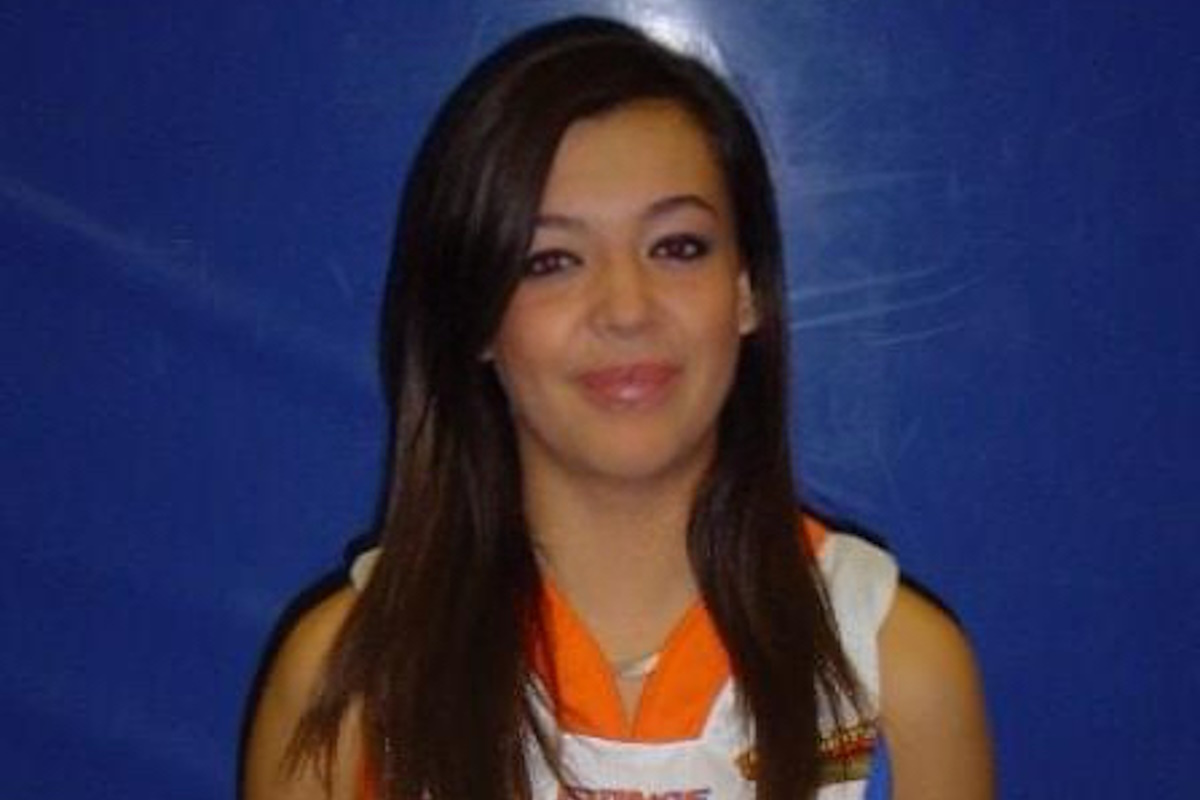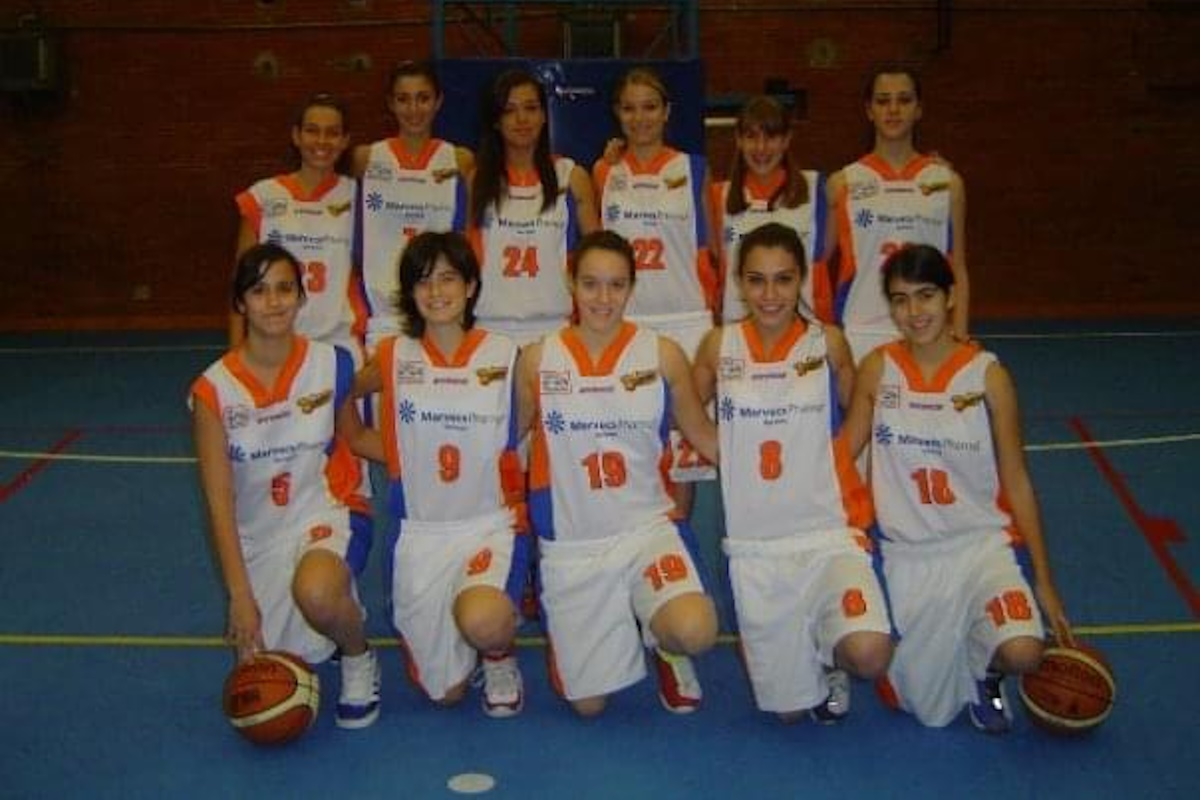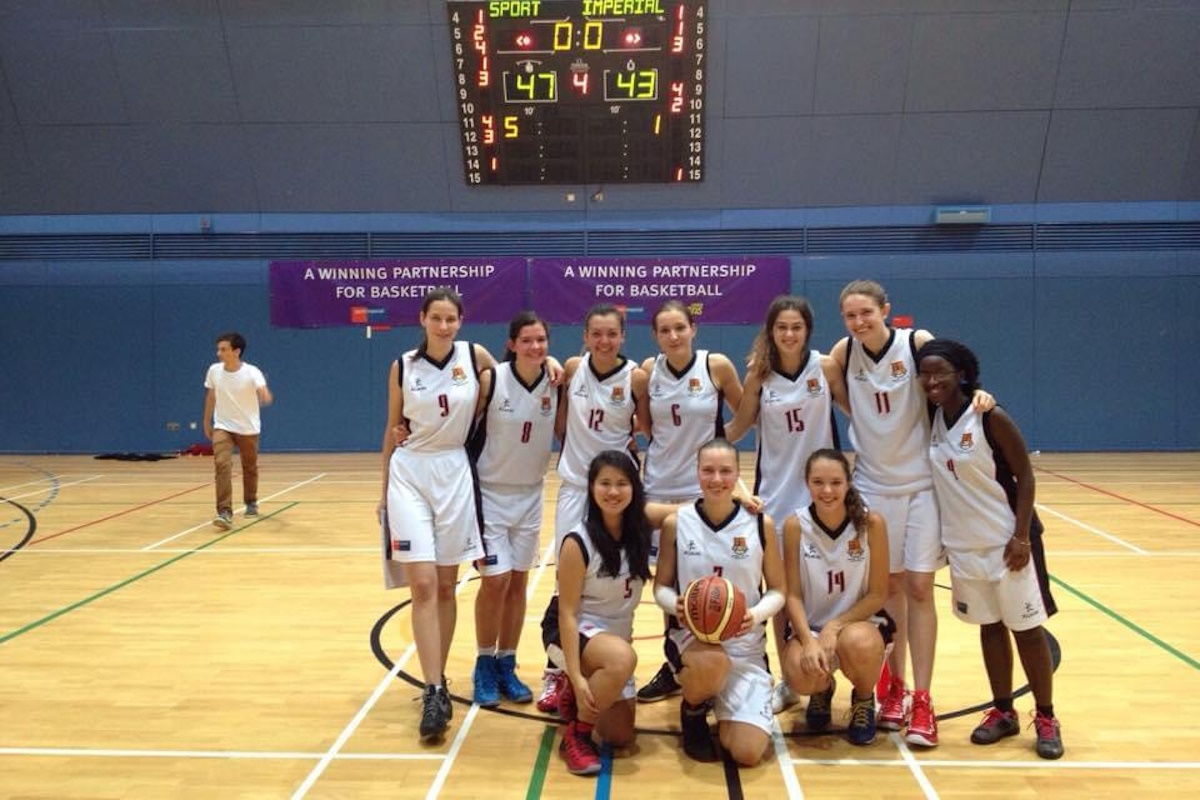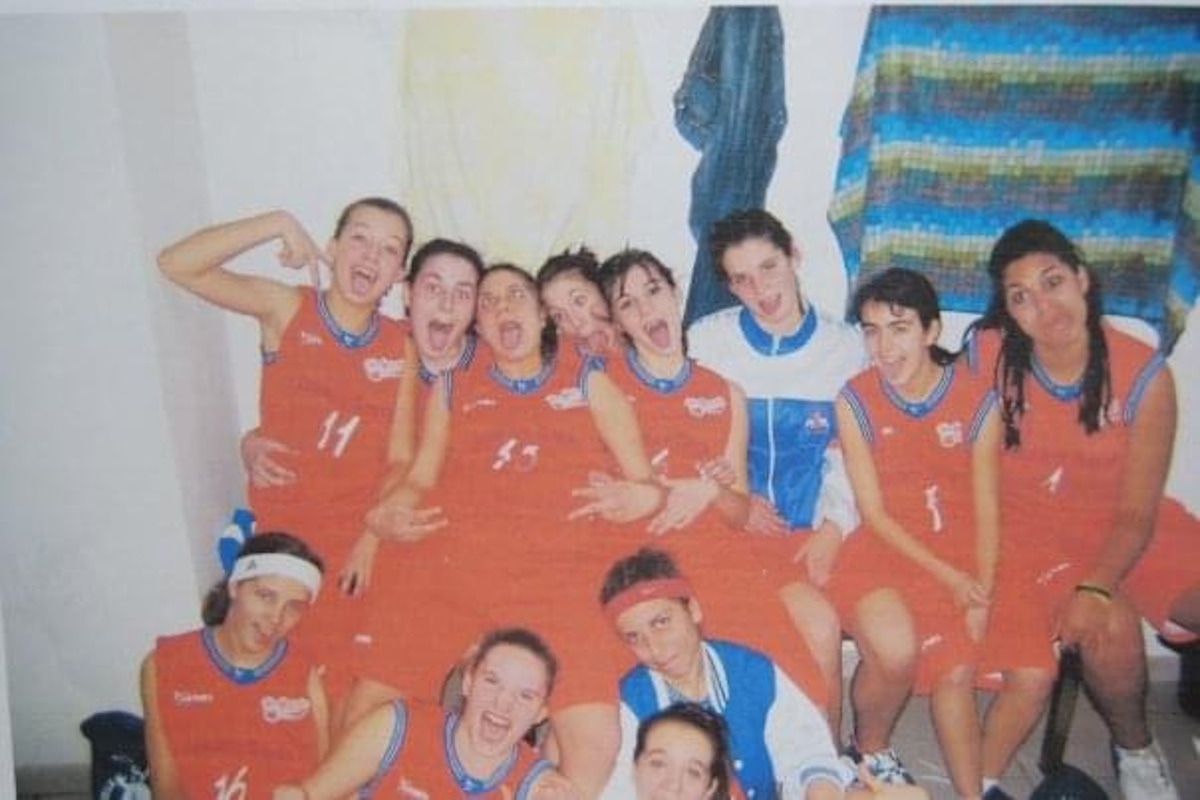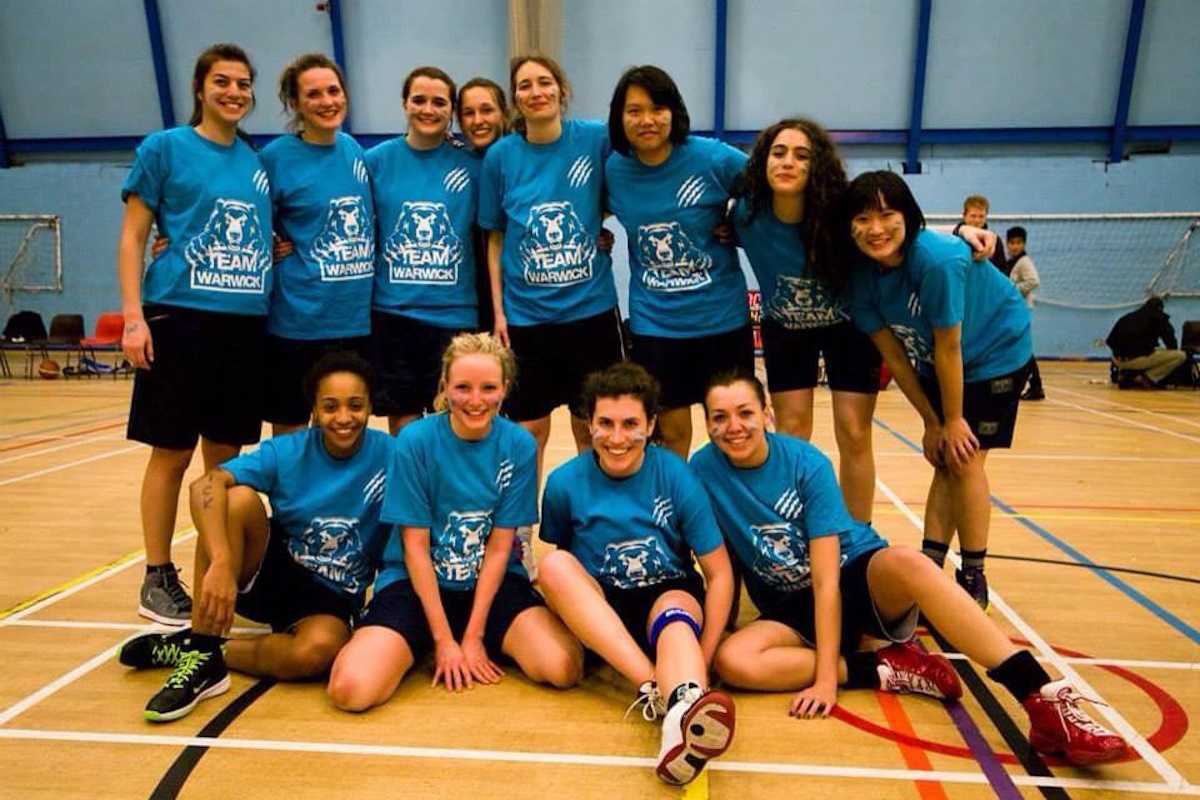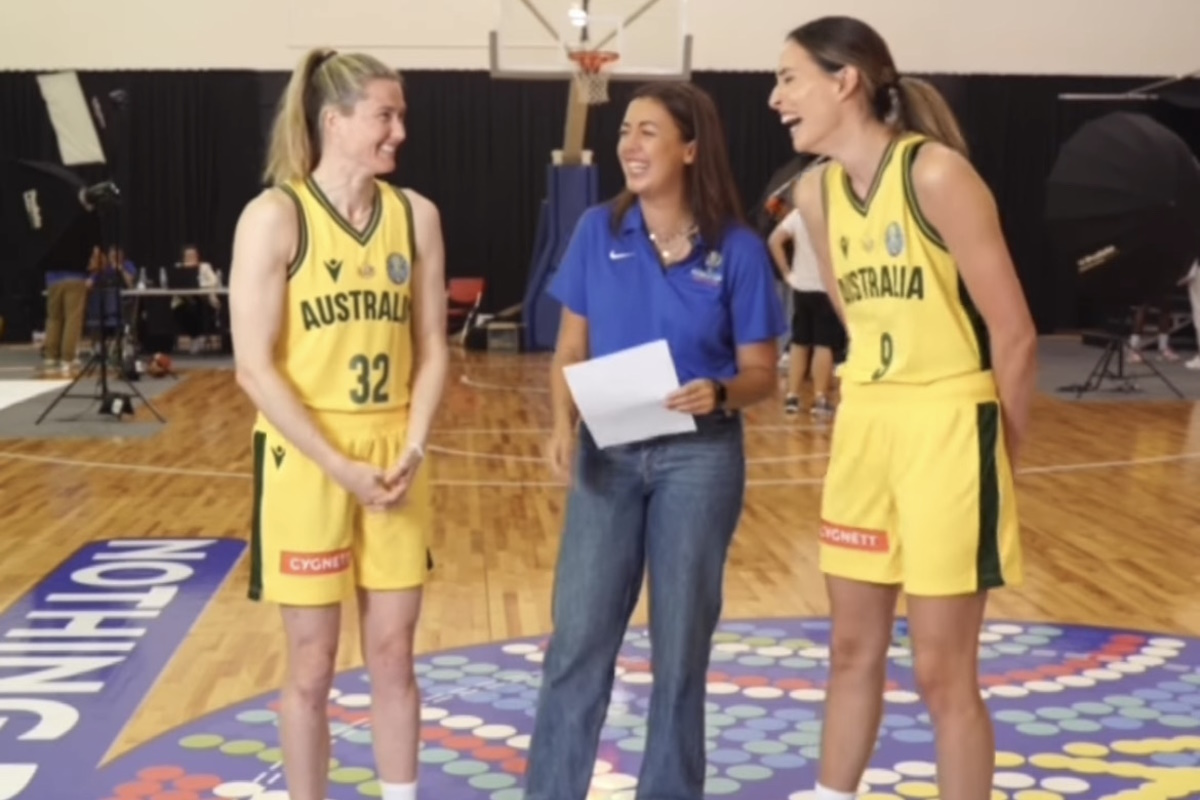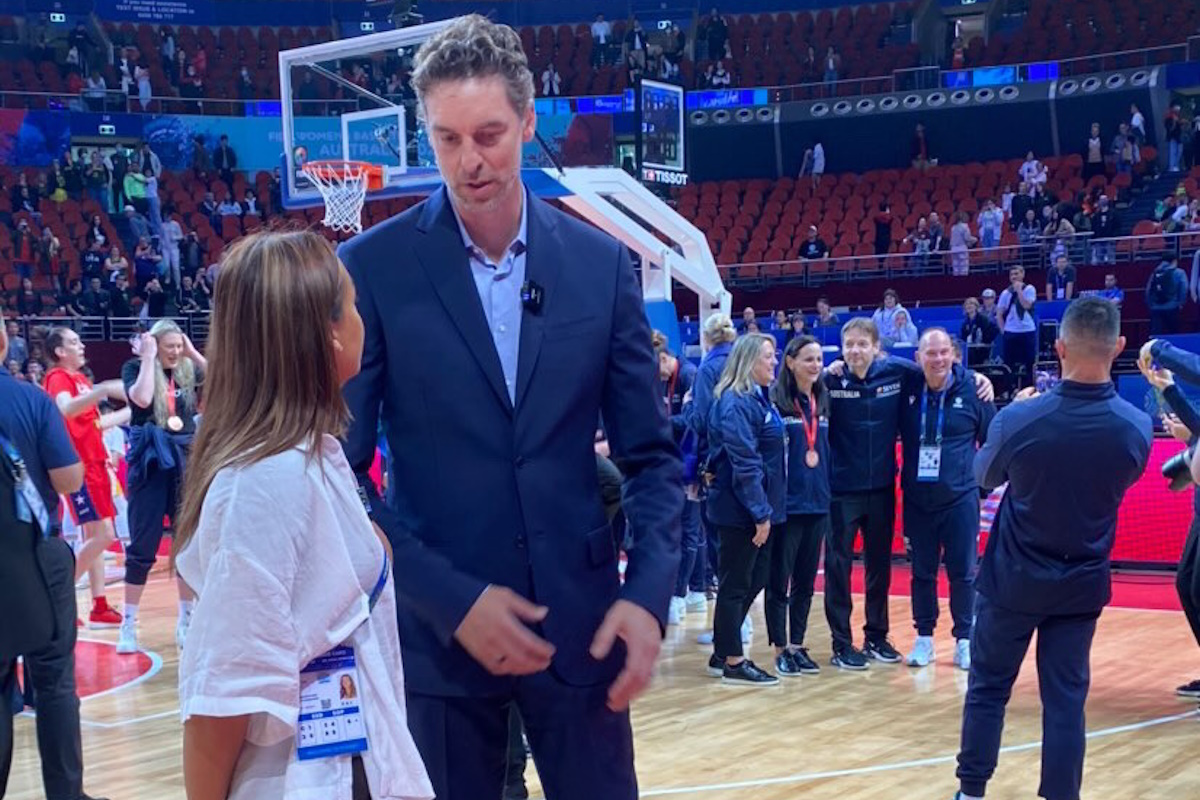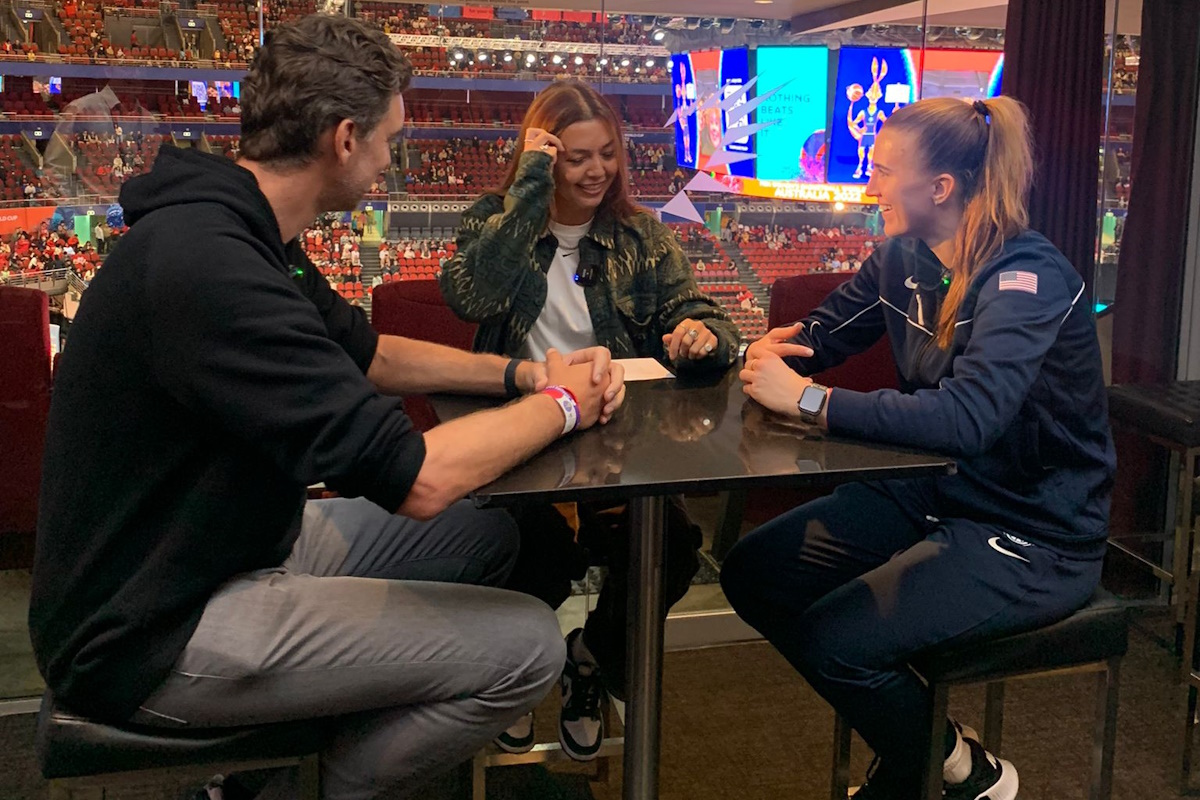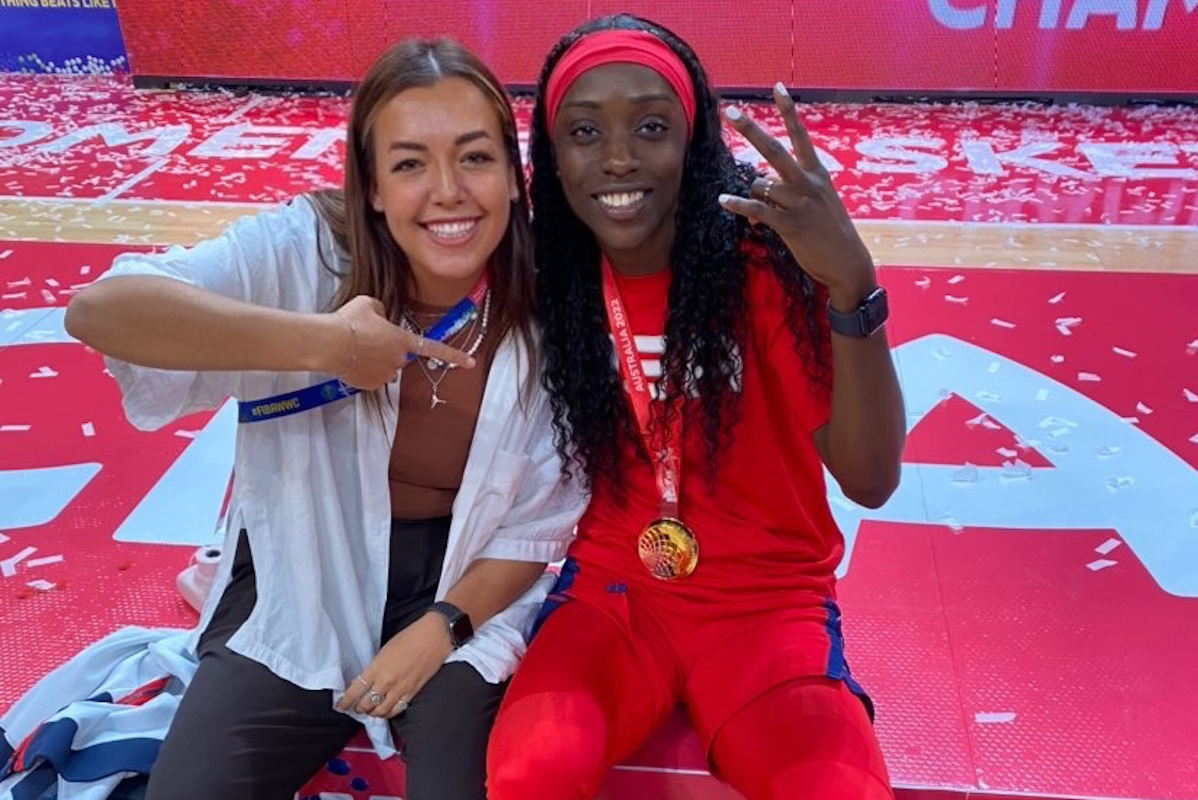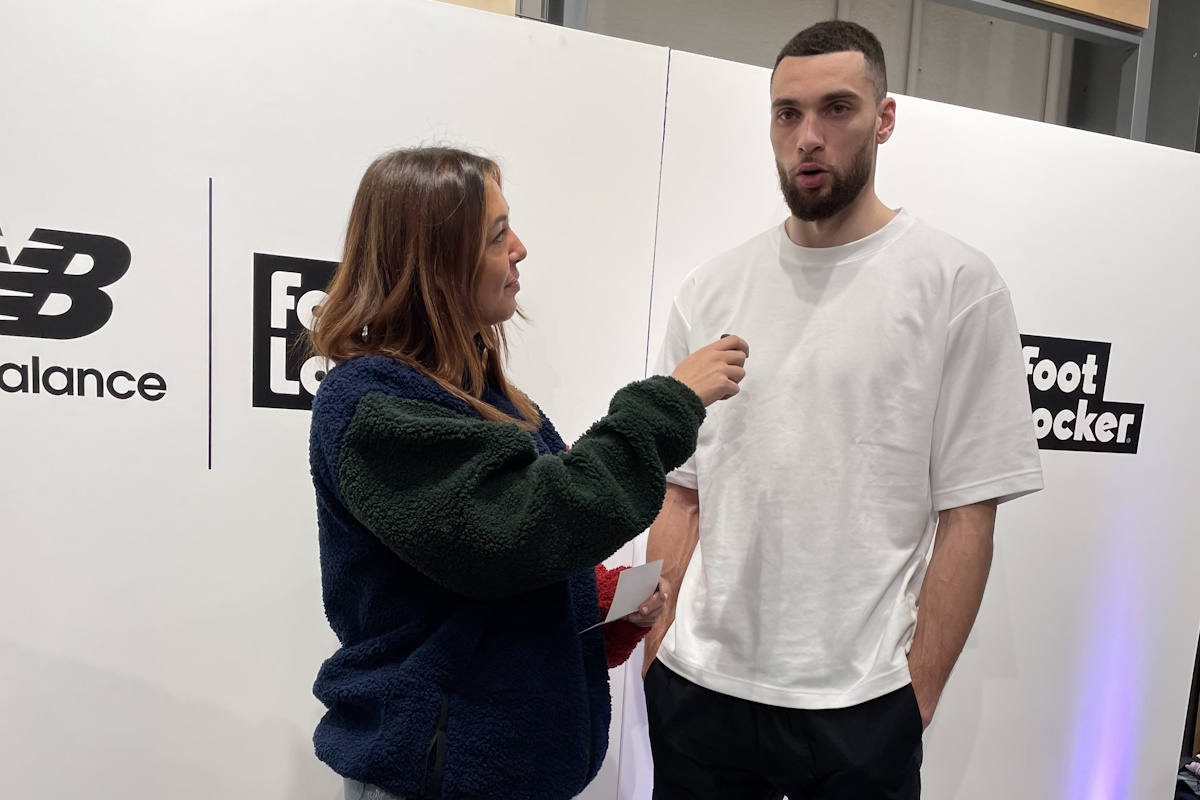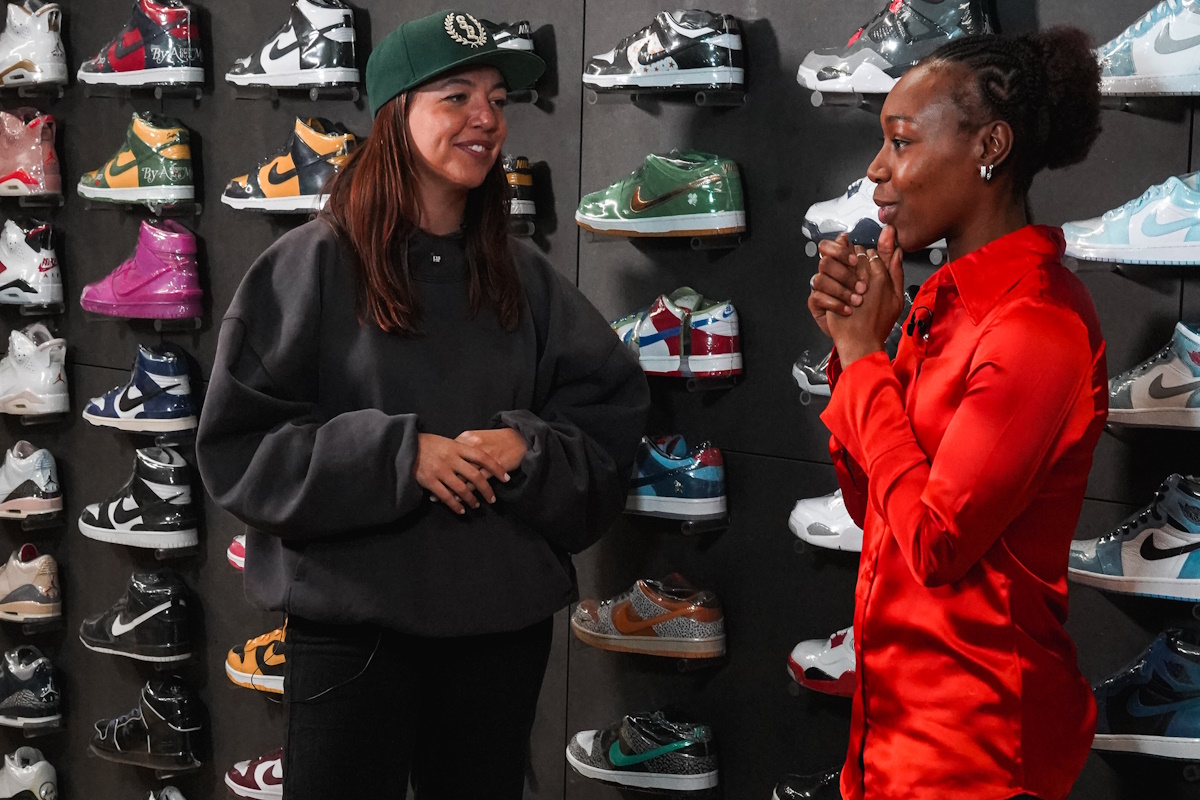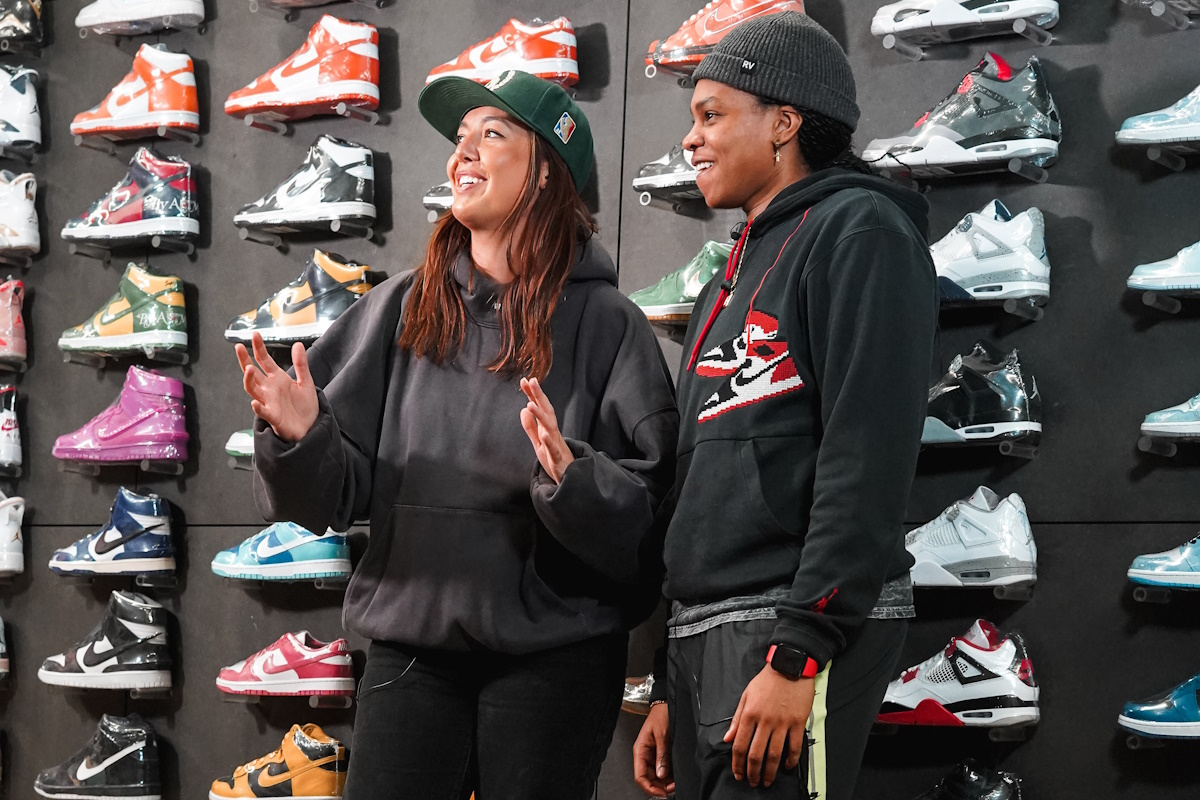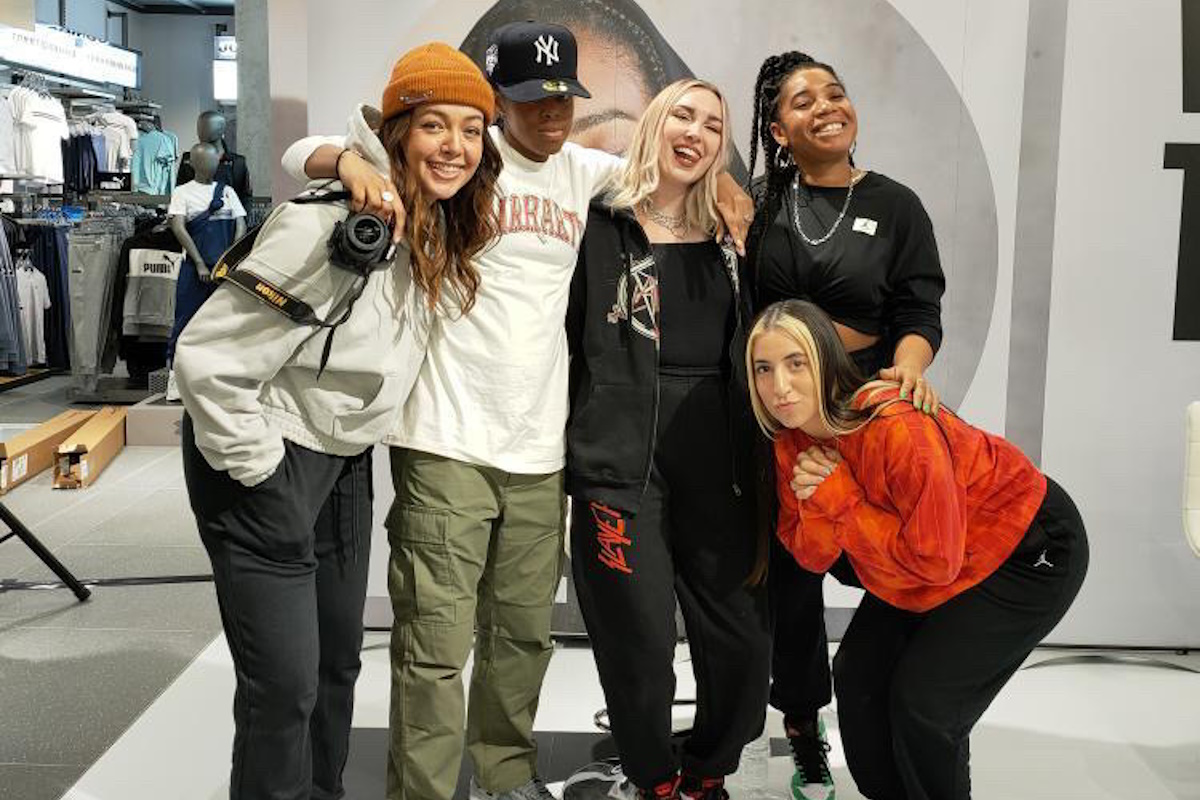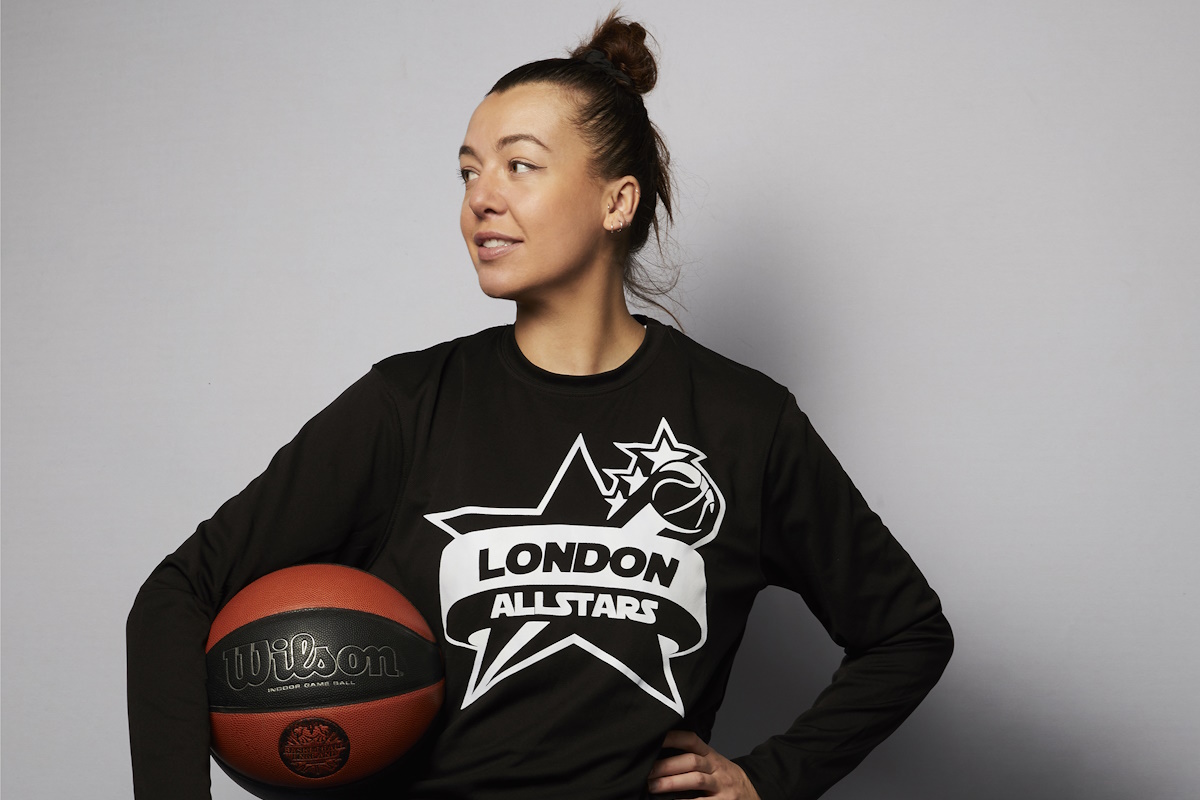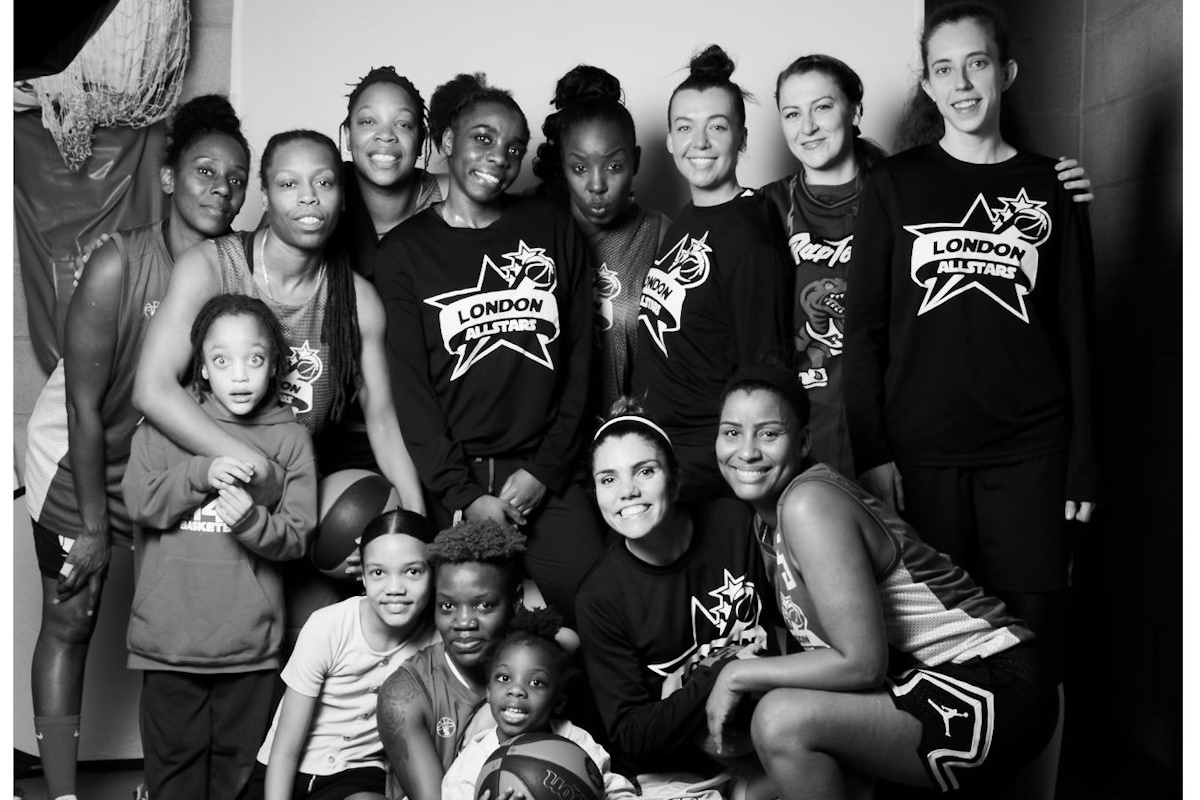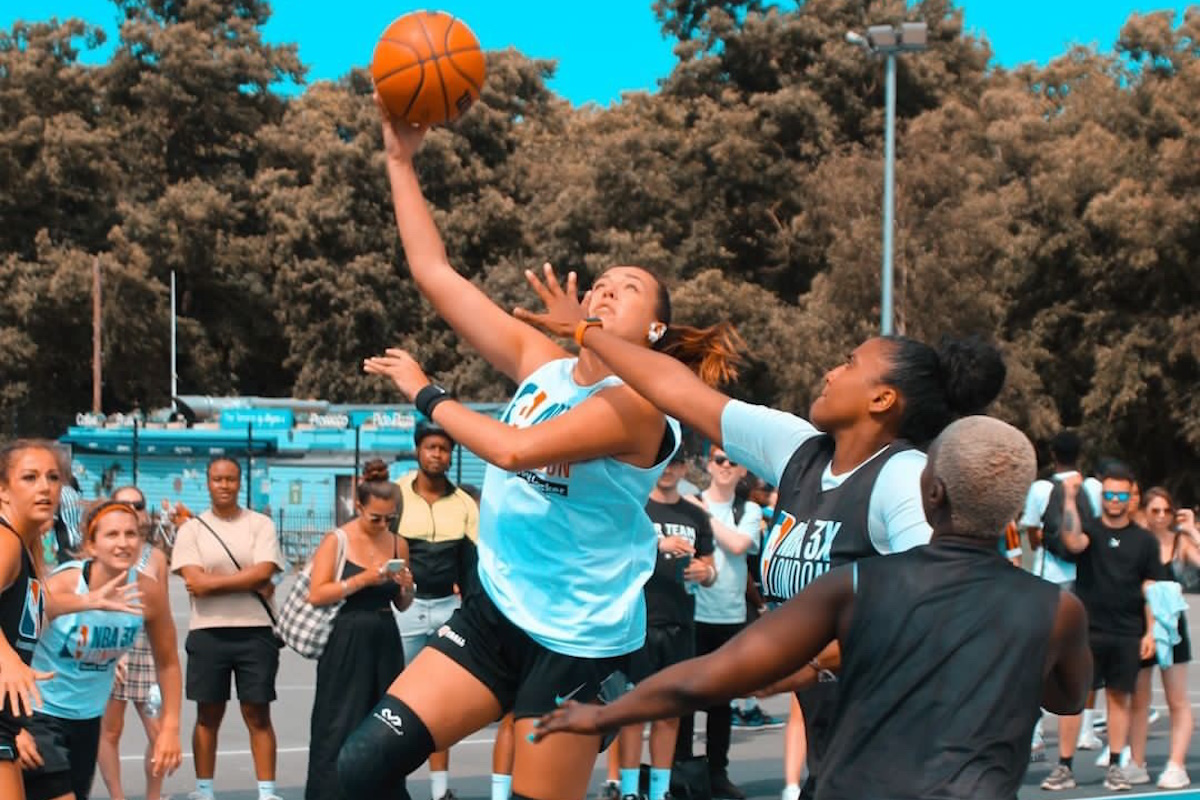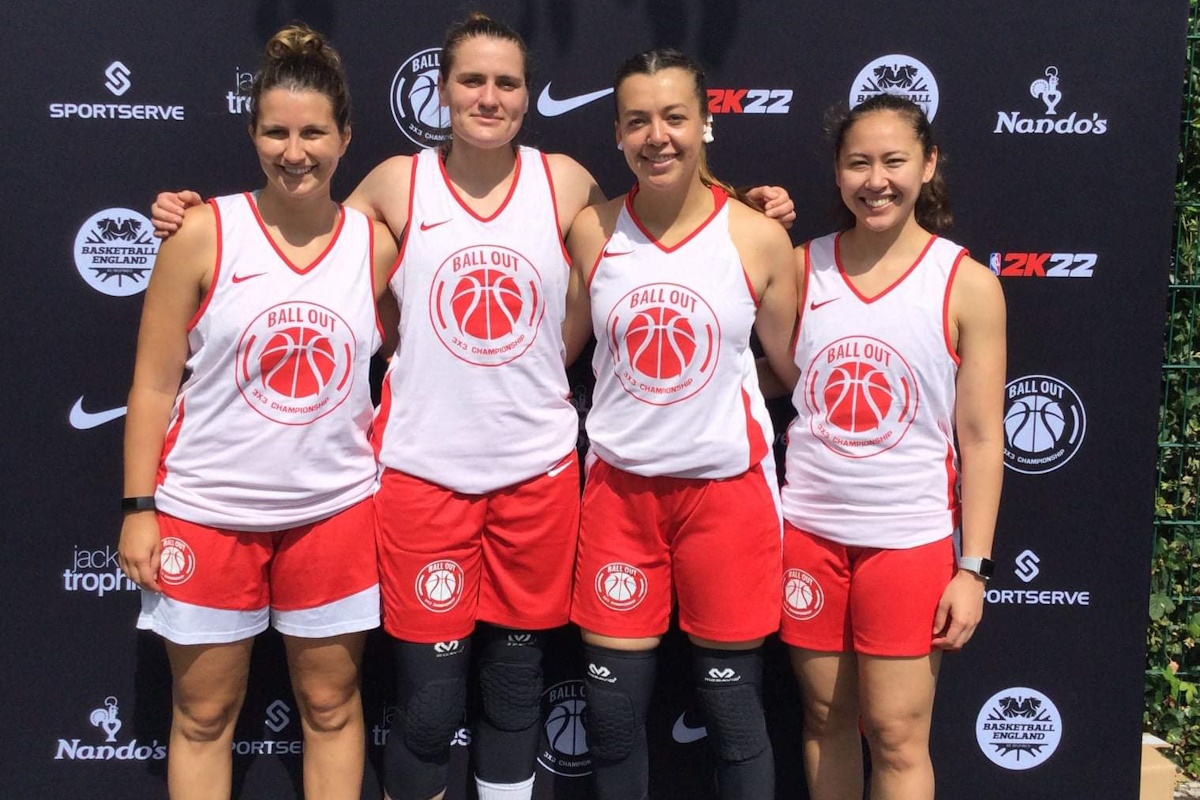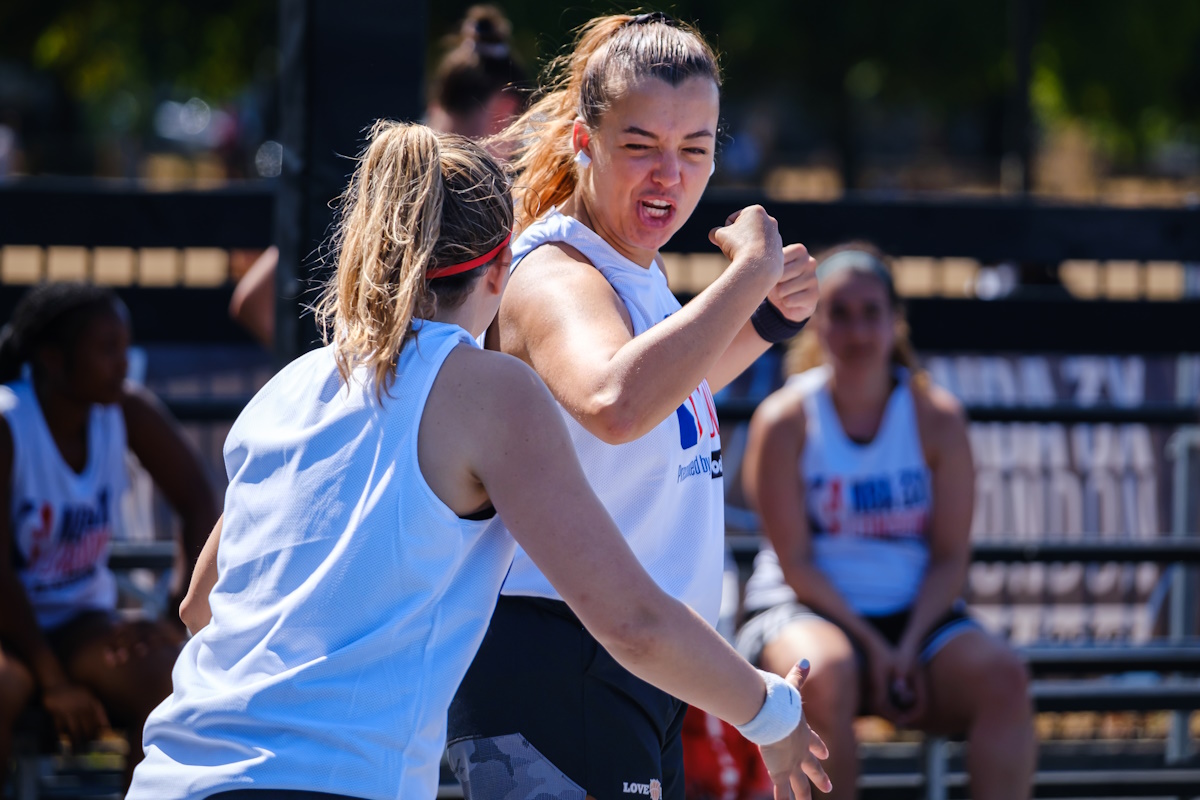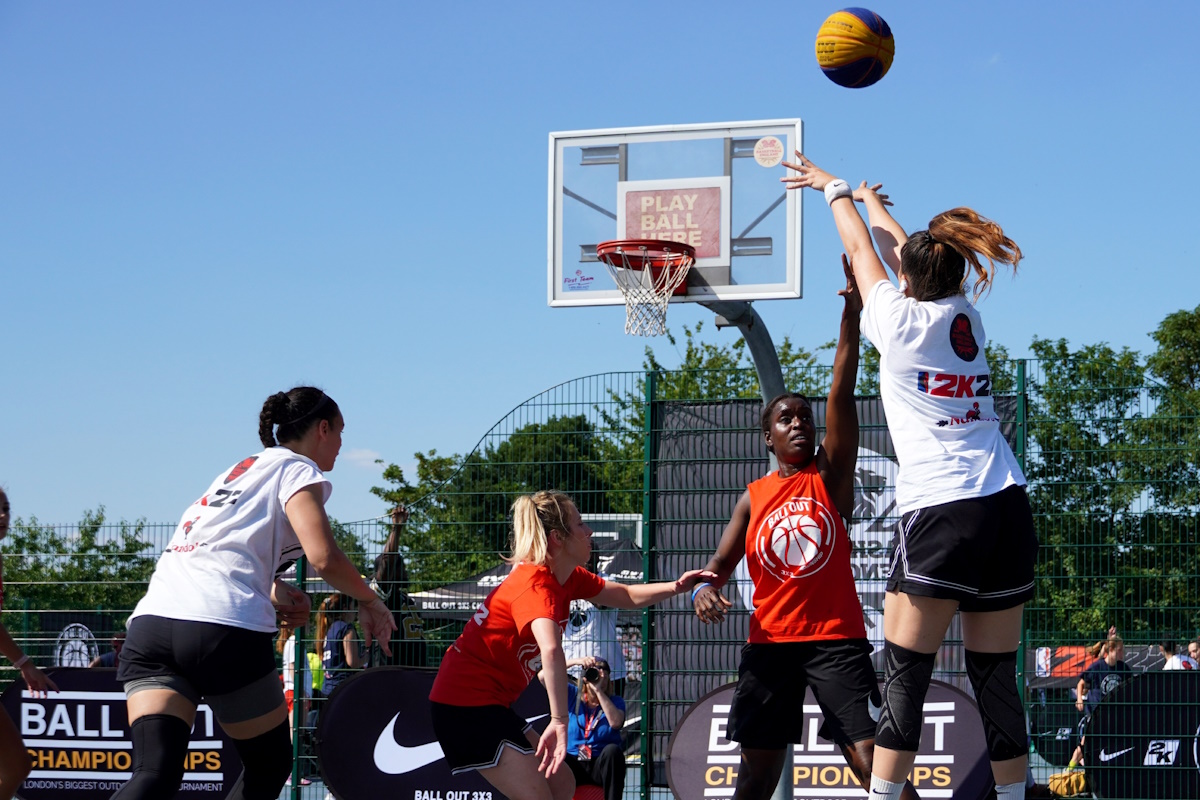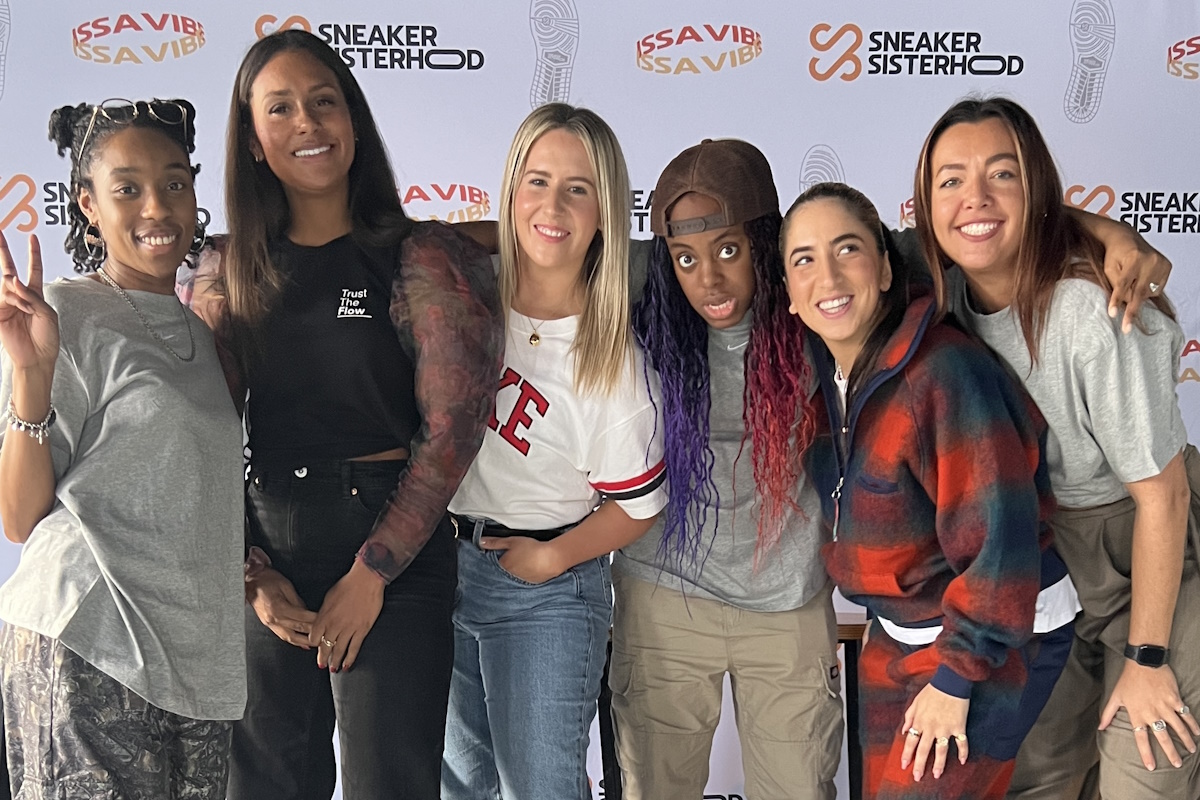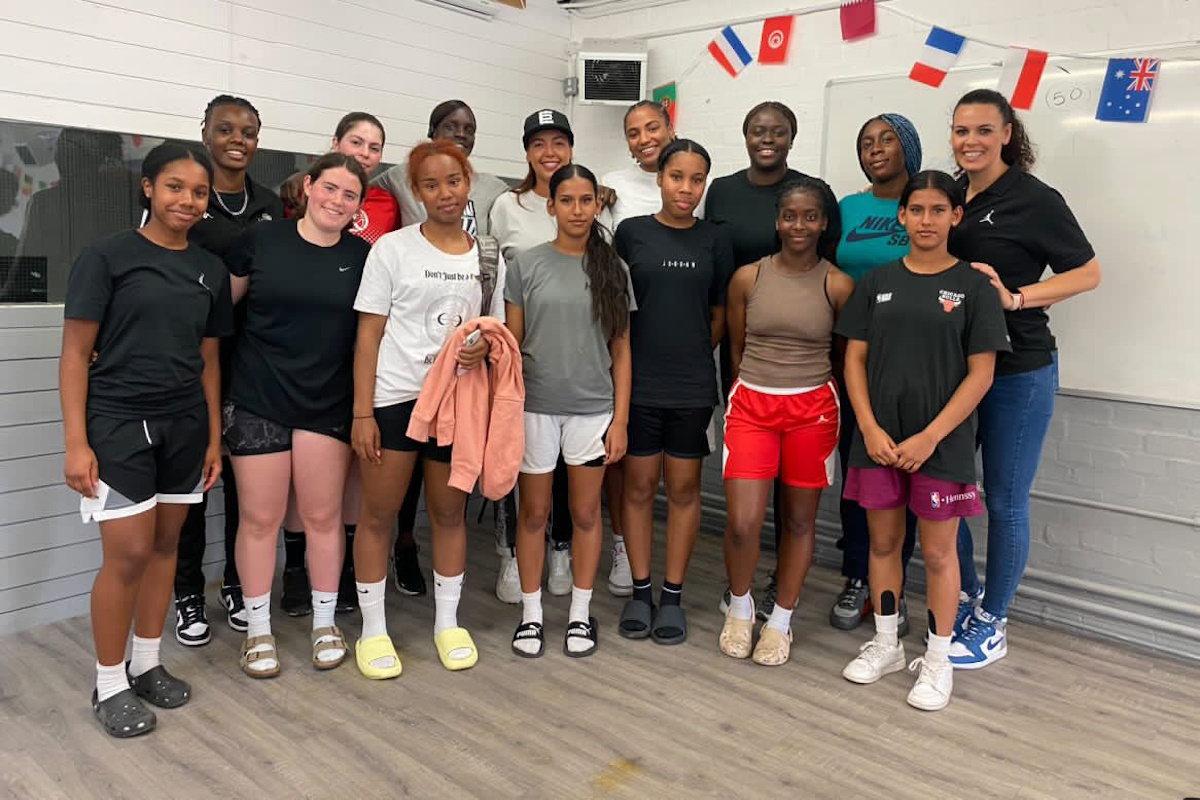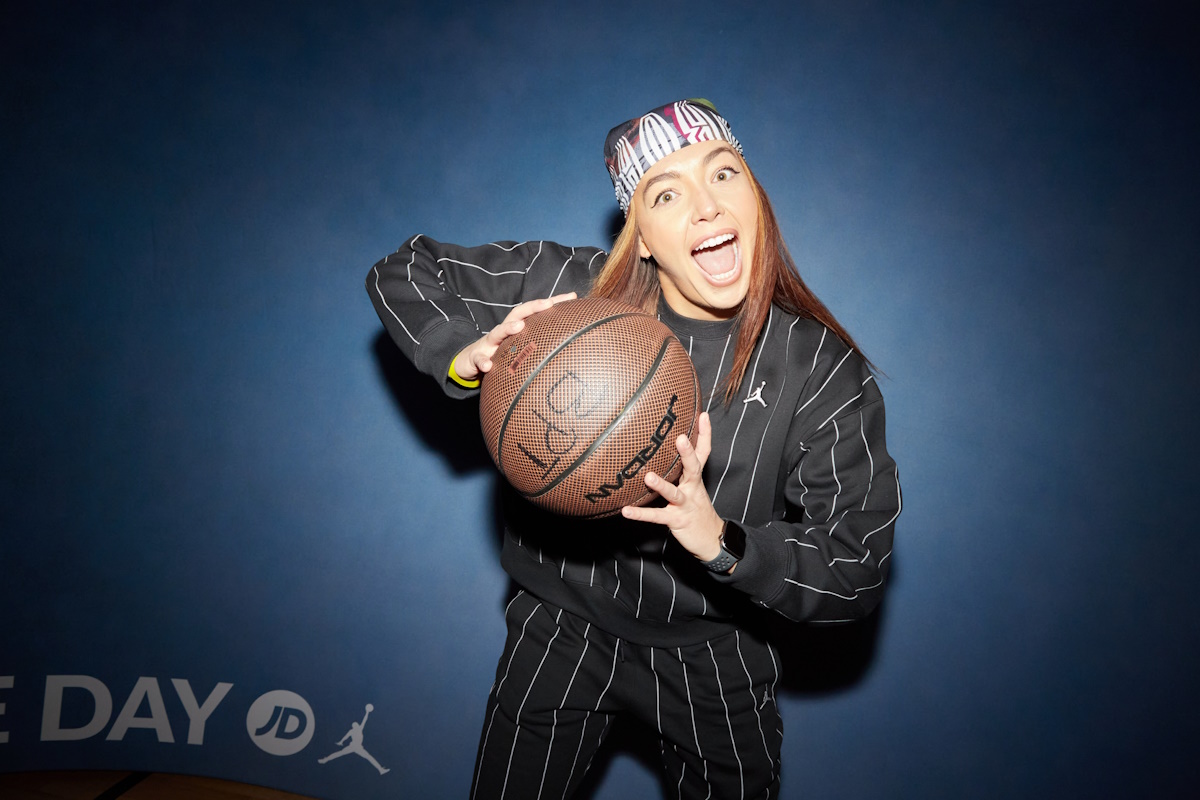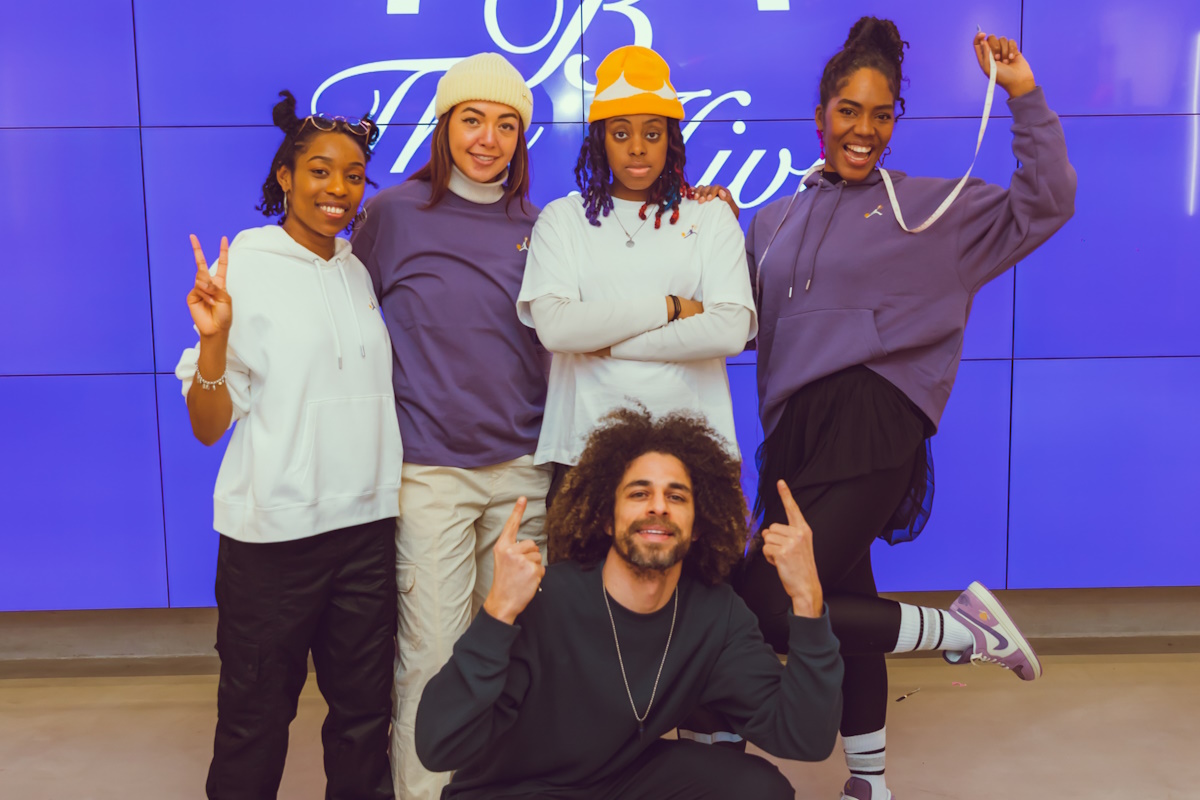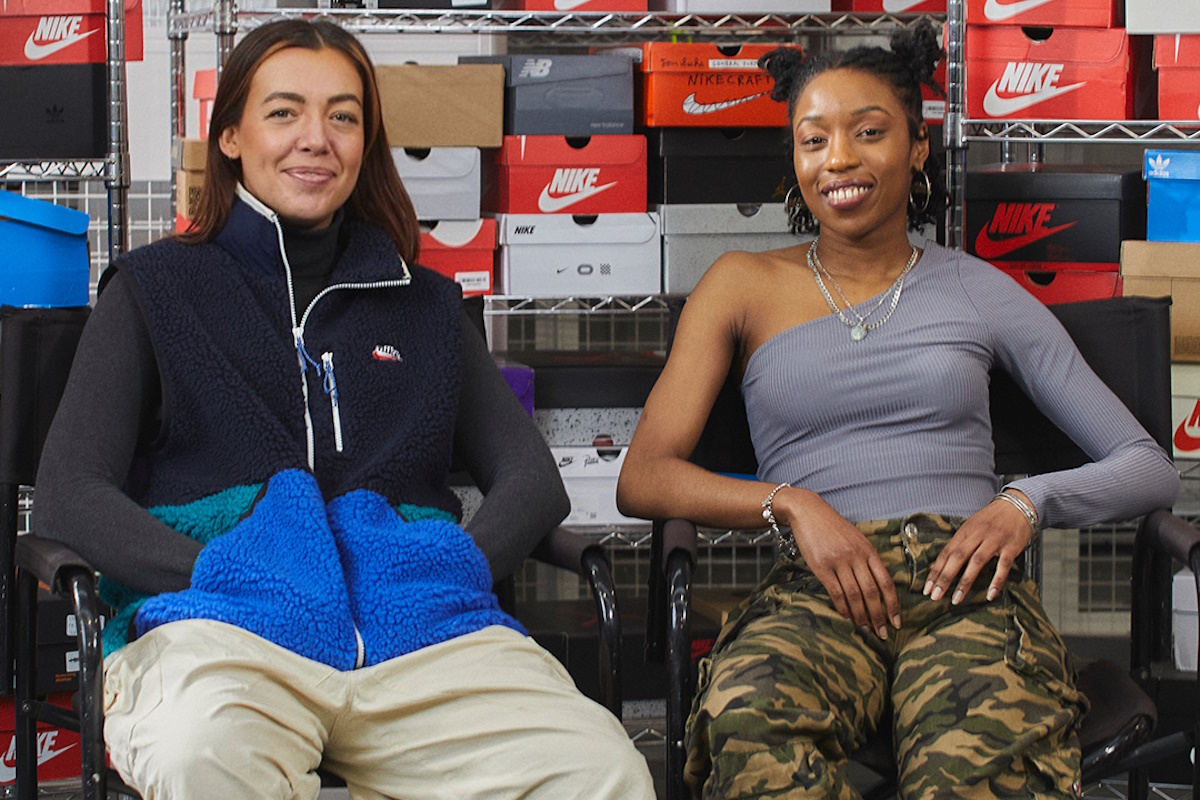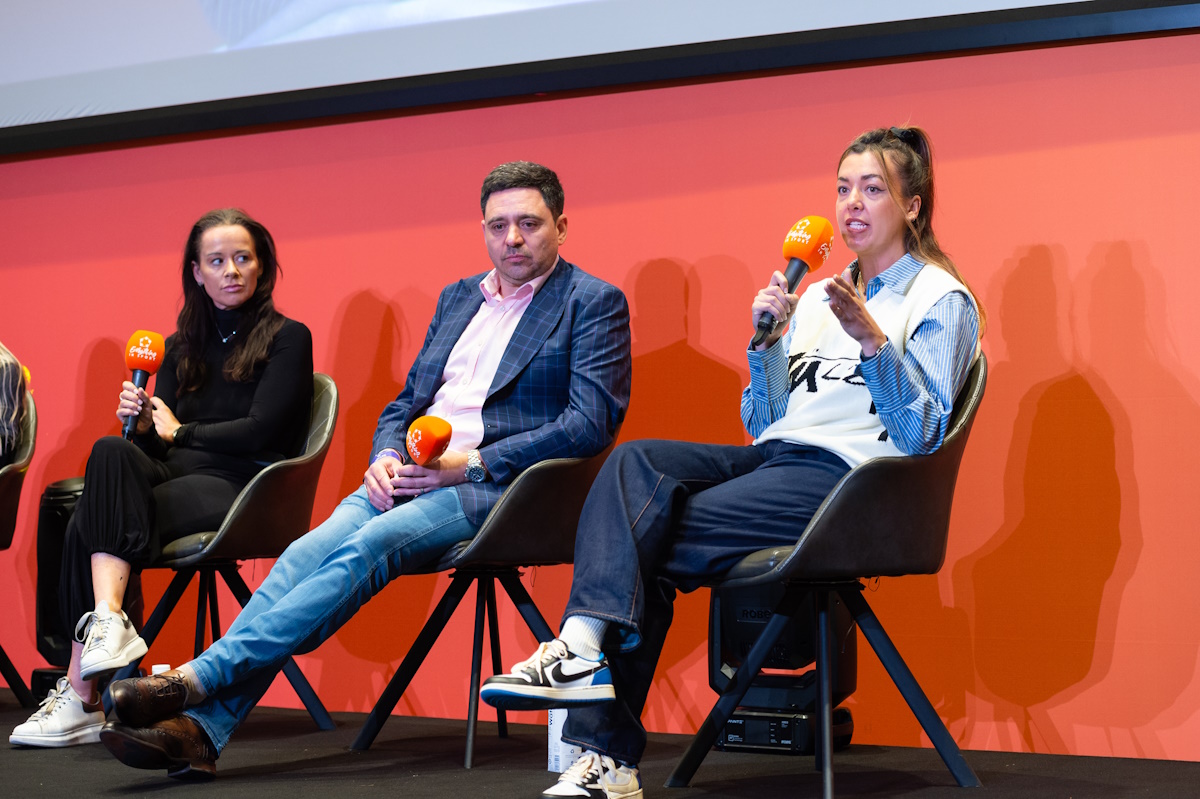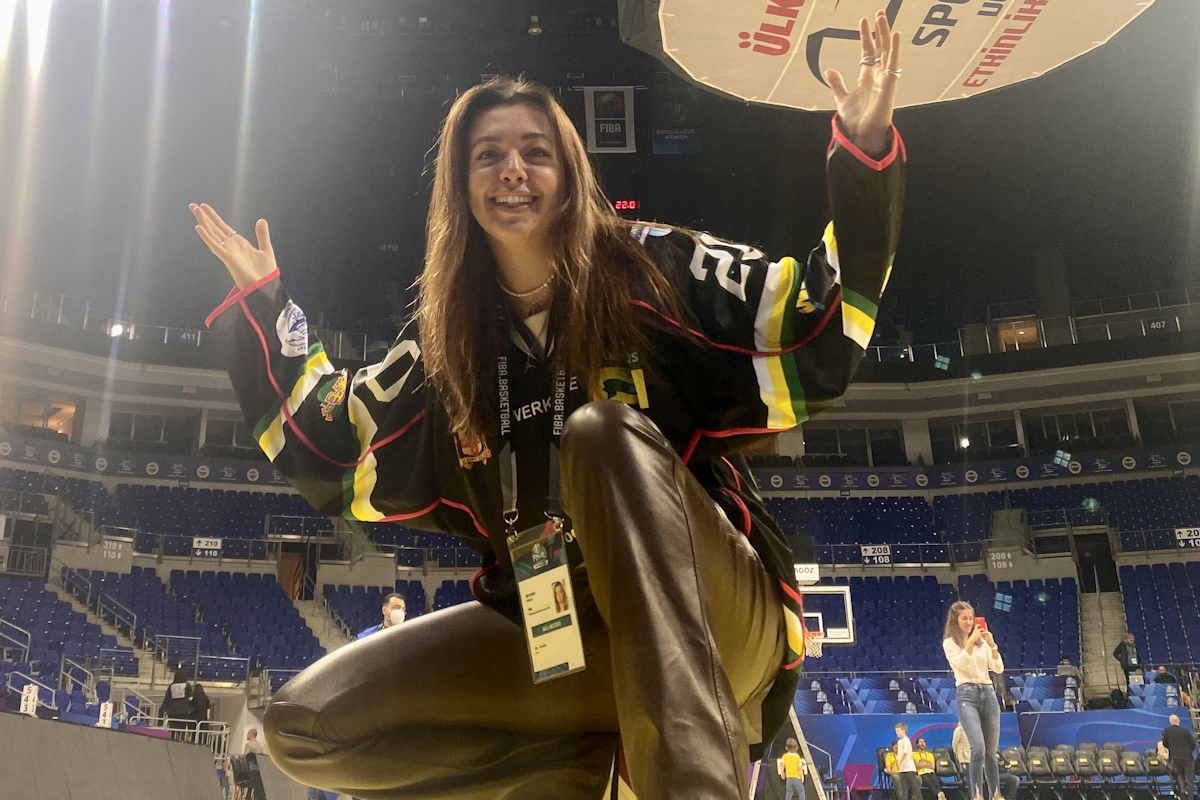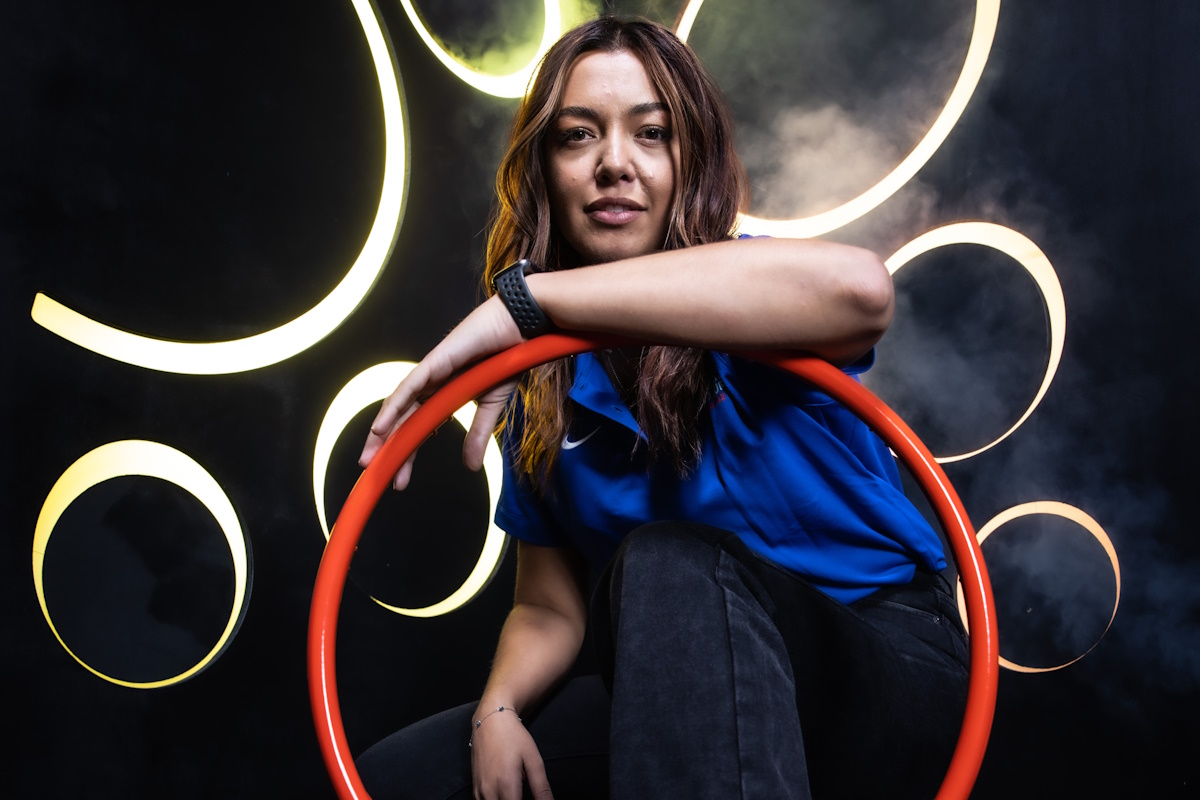
But most importantly, she is an asset to basketball; to British basketball, significantly, and has built a digital community for and of mostly women who love the game and want to share their passions within it.
The 31-year-old is probably best known for her work presenting and hosting for FIBA's EuroLeague Women competition, and as the co-founder and one of the faces of Sneaker Sisterhood – a safe space and platform for women and girls to share their interest in footwear fashion.
Across the Sisterhood and her personal social media accounts, she speaks directly to nearly 40,000 followers, sharing the stories of the basketball leagues and the female players she adores.
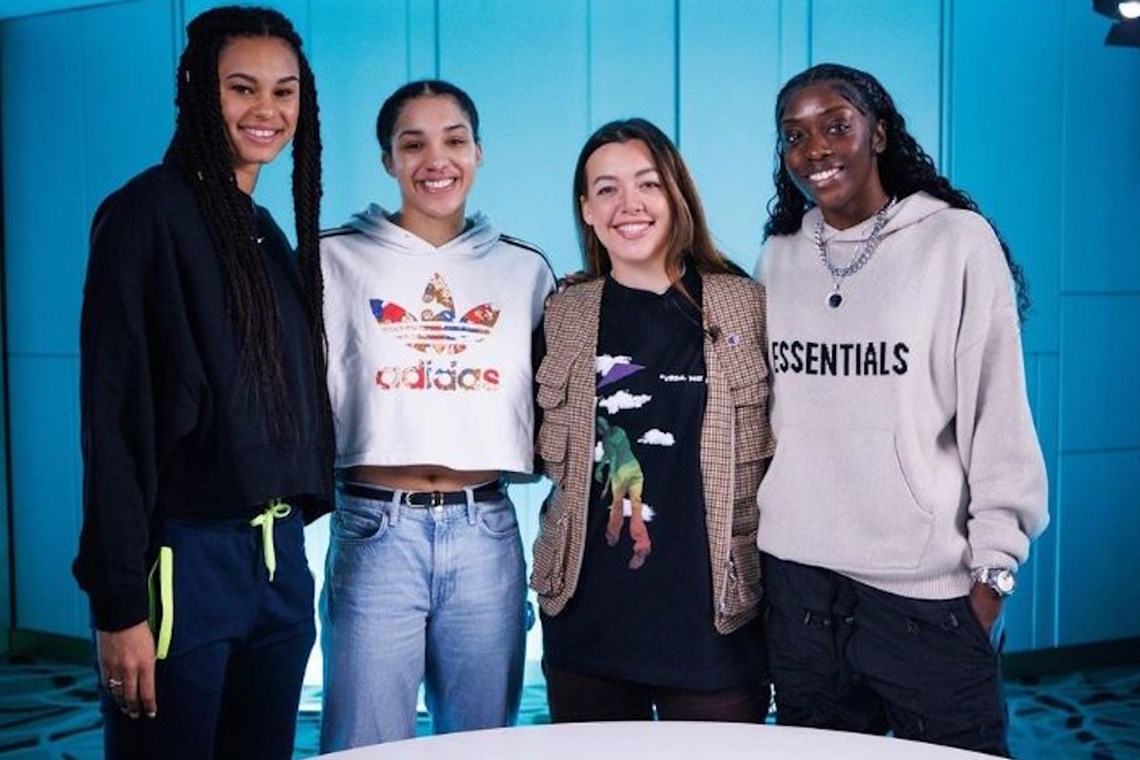
The captivating basketball content Zecchini produces for women is driven by a belief that in a still mostly male-dominated world, women can feel a pressure to compete against one another to have a voice; to carve out a narrative for themselves; to be passionate about something; to be recognised.
But Zecchini doesn’t buy it.
She knows from her time on the court that successful basketball is rarely about the individual but about the team, collaboration, and all pitching into a shared goal. That’s why her focus is always on the community over competition.
“The collaboration and the community aspect of your team is what will make or break it. If you have too many individual players that are selfish and just think of themselves, teams rarely work. We see it in every aspect of the game from grassroots all the way to pro, so I've tried to take that understanding into the business side of my life.
“In regard to the social media persona that I put out there, I think women are more socialised to be competitive against one another. To work in a group and be a team, women are like, ‘oh, there's less places for us’. Therefore, we need to compete. Whilst, actually, most of my success is thanks to women that have pushed me to be better and women that have said my name in rooms that I wasn't in. And I want to make sure that I'm [doing] the same.
“I don't care whether my message resonates with five people or 10,000. I'm just hoping that I always get these lovely DMs (direct messages), from people saying ‘I loved hearing about what you said about the WNBA, and how the free agency system works because I didn't know it worked that way. I've learned something’. That's all I need. Somebody is learning from me, somebody has taken an interest in women's basketball and learnt something new. And that's all that matters."
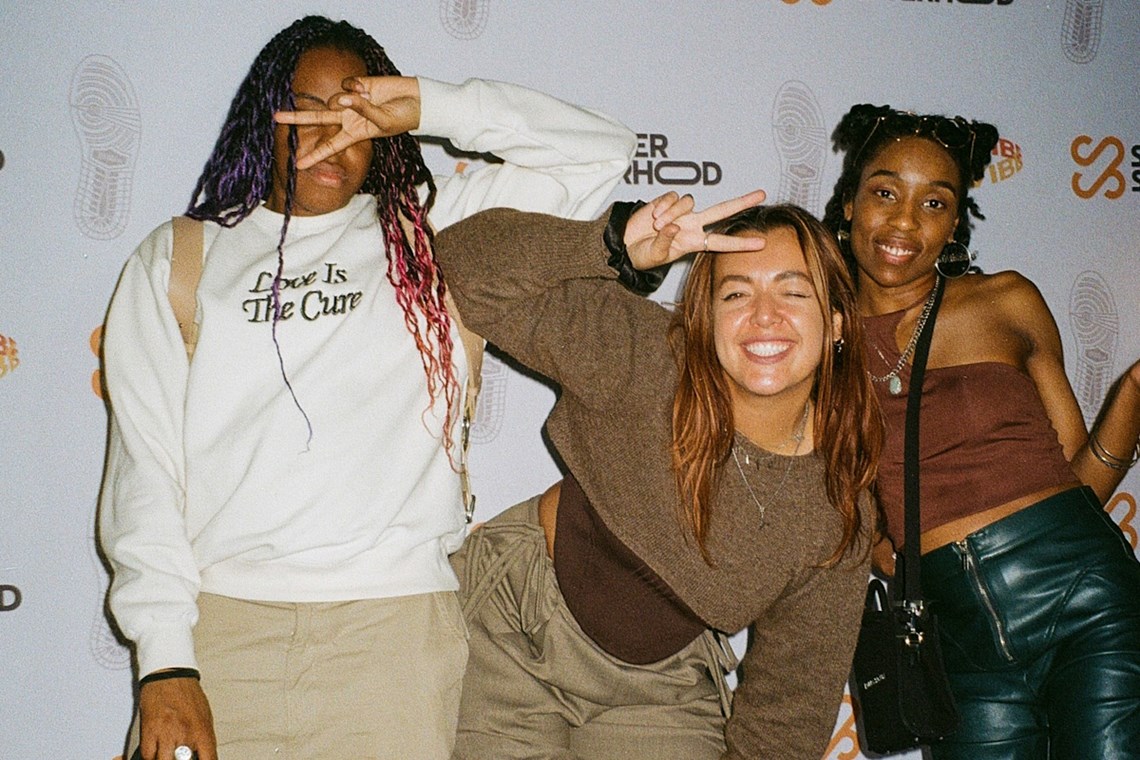
Zecchini was born and raised in Milan and cites her dad, Massimo, a former professional basketball player, and a positive teacher in school, Ms Janine Kennedy, as the moulders of her love for basketball, which she played semi-professionally in Italy.
Moving to the UK for university – she holds a BA in sociology and a MSc in innovation, entrepreneurship and management – she donned the colours of the University of Warwick and Imperial College London in the British Universities and Colleges (BUCS) basketball leagues and has played in the Women’s National Basketball League (WNBL).
Currently, Zecchini is in the throes of rehab, having undergone recent ACL surgery, but is making swift progress and is hoping to return to play for Ruth Eytle’s London All-Stars in Division 2 of the WNBL sooner rather than later.
Reflecting on her passion for sneakers and why she started Sneaker Sisterhood with Juelz Ndubuisi and Ja’e Ladnar, Zecchini tells a story familiar to many British ballers who grew up in the 90s and 00s in the days of high-street only shopping – that it was nigh on impossible to get basketball kicks, well the ones you wanted at least.
It didn’t matter if you happened to catch your favourite NBA/WNBA player on terrestrial television, wearing their signature shoe, you weren’t going to get it. Unless you knew someone visiting the states who could grab you a pair.
However. there was one brand she could get in women’s sizes – And 1 Tai Chis – and when Vince Carter donned a red pair for his iconic 2000 dunk contest performance, ‘Zecchini the sneakerhead’ was born, buying every colourway she could get her hands on.
But there’s a lot more to Sneaker Sisterhood than just content about sneakers. Just like the way basketball can shape people’s lives and stories, footwear fashion can too. Zecchini says it’s just a vehicle for women to express themselves. And that’s what’s important.
“Women sometimes don't get the opportunity to tell their stories in an equal manner. We wanted to offer a platform that let women talk about all their different passion points. Of course, a lot of women come into sneakers because they love sports. So many love music, they love fashion. And we wanted to represent all of that. It played a big part in my life and my personality development as well.
“The objective has always been storytelling, but true storytelling, we don't want to give in to whatever expectations or stereotypes that others might have. So sometimes we'll have brands that come to us and they're like, ‘this is what we want to do’, and [we have to say], ‘we're not the right partner for that’. We want to make sure that we stay authentic, true to ourselves, tell the stories of our community, get everyone involved, make sure that we have a very diverse group of women, but that they all feel included and represented.”
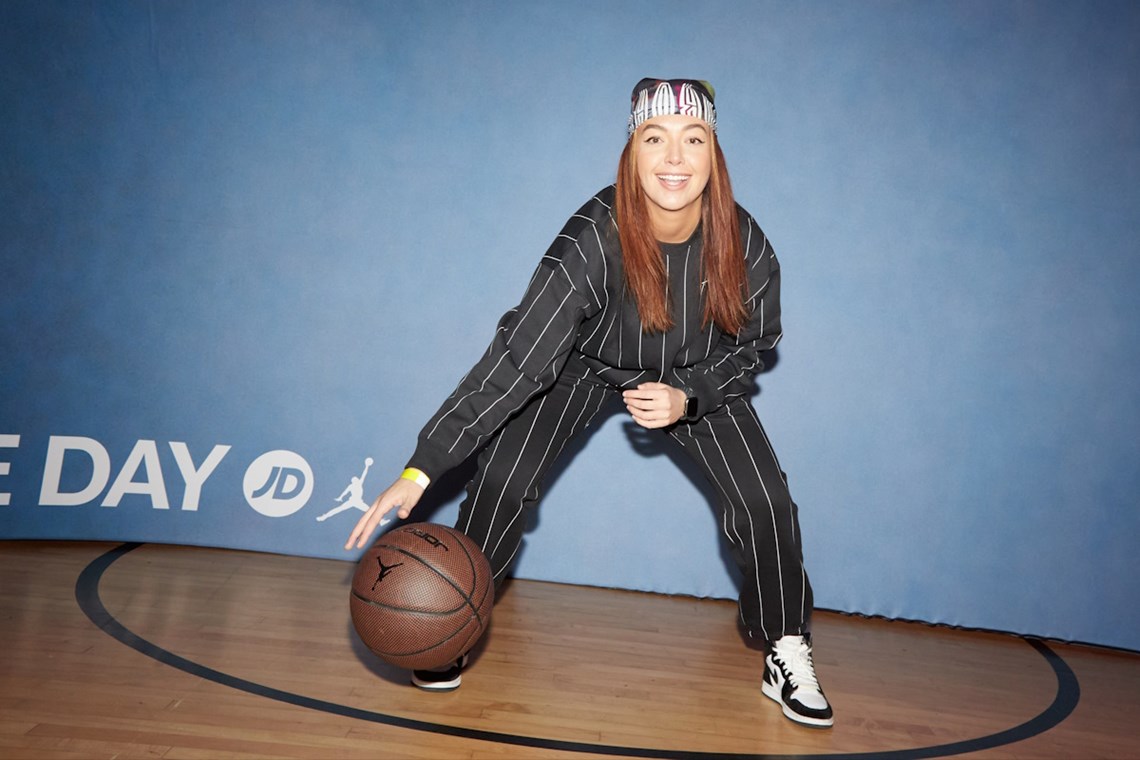
Zecchini’s professional resumé is seriously cool.
Currently, she works as the Commercial Partnerships Strategy Director at ESL FACEIT Group – an organisation that leads the esports and gaming scene through platforms that unites gamers, fans and creators – but in the past, amongst other things, she has worked as a foreign correspondent for HuffPost, worked as the business intelligence manager for Formula 1 and was a sponsorship insights manager for the Premier League’s top football clubs, including Manchester City, Arsenal and Chelsea.
She was also named by the Sport Industry Group as a 30 under 30 ‘NextGen’ leader in sport for her impeccable understanding of the world of business, data analytics and societal behaviour.
In 2021, she joined Basketball England’s ED&I Committee – formed to help the governing body take a stronger approach to tackling discrimination and promoting fairness and respect across basketball – to contribute her ideas and solutions to some of the problems that are present in the sport and be part of a movement that ‘could better the environment for everyone’.
Zecchini believes the most powerful thing about basketball is its diversity and says she gained more about life and culture through playing the game than she did its plays and skills.
From her perspective she has seen how brands want to contribute to organisations nowadays and it’s to be seen doing good to the communities they serve. No longer just interested in their brand being on jerseys or advertising hoarding, the honourary Londoner thinks that purpose driven marketing is the course du jour and could be a way for BE and other basketball organisations to diversify their funding streams.
“If [brands] can intersect doing good and effecting grassroots sport then that will build synergy towards them, and then [they] get some return on investment through whatever activations they do. That can probably bring [basketball] to life a lot more than just having one funder.
“At Formula One, when we decided what our 2030 sustainability, diversity and inclusion goals were going to be, we had big budgets to start making that happen and to start making change, working at the grassroots level [upwards].
“The difference with basketball is that we're supporting however many millions of kids across the country. And it's not just players, it's coaches and referees and table officials and physios and anyone surrounding that. So, change can be a bit slower.
“But I think as long as the right people are in place that want to do the right thing, and are taking care of the wider community, and you're getting those diverse viewpoints and you're giving a voice to the community involved. That's what helps to change things.”
.
.
